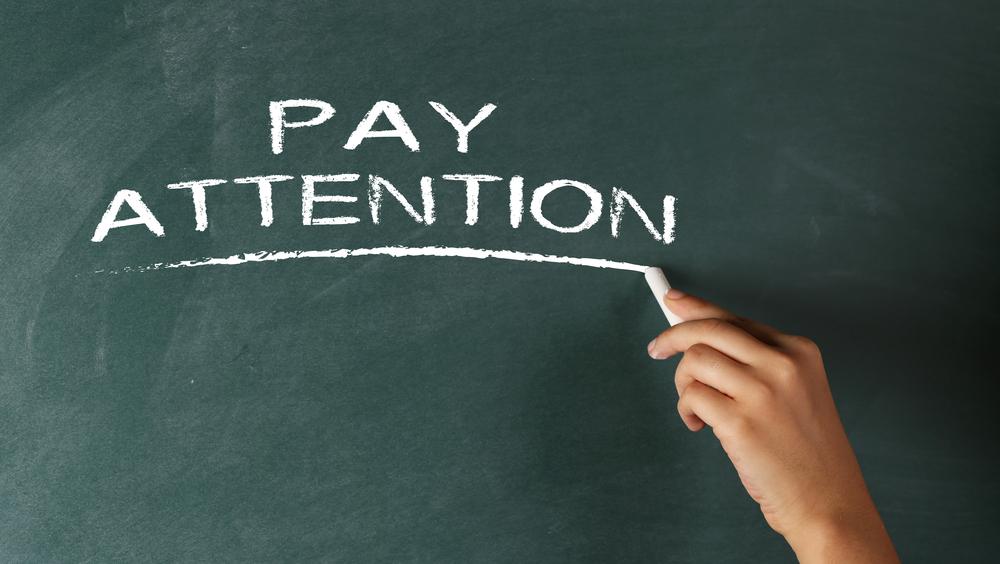
Pay Attention: The Art Of Looking At Your Opponent
In April 2016 I wrote an article called "Dancing With Yourself."
After looking at a lot of amateur games (on Chess.com and also in tournaments)—and at those by titled players—I see (sadly) that most people are still dancing with themselves.
Okay, titled players don’t make horrific errors too often, and if they do it’s usually for different reasons than amateurs. Nonetheless, everyone is vulnerable to the “dancing with themselves” disease.

Here are the first three paragraphs from that earlier article:
- When I look at games played by 1500-rated players and below, I see many weaknesses, but one is almost ubiquitous: both players are, more or less, dancing with themselves. What this means is that a player decides to do this or that, he might calculate a move or two, and when he makes his move he’ll often find that the opponent’s reply has nothing to do with his expectations.
- The reason for this is that his calculations/expectations are based on a fantasy, and his internal dialogue might sound something like this: “I’ll go there and then he’ll do that and I’ll wipe him out with that! Oh yeah! Am I good or what?”
- It certainly sounds nice. But when the “dancer” is making his calculations and/or plans, he isn’t trying to find the opponent’s best move. Instead, he’s looking at enemy moves that highlight his own dream.
Though it’s normal for lower-rated players to run into plans that are too advanced for them to recognize, you still need to do your best to figure out what in the world your opponent is doing. And no matter what your rating is, you always have to PAY ATTENTION.
That means a very nice positional idea might be amazing, except for the piece that you left hanging. That means that you want a quick kill thanks to a long tactical calculation, not realizing that you missed a pin and you were the one that died quickly. That means that you made a reasonable developing move, only having to move it back since you suddenly realized that it doesn’t belong there.
Example One
This is all about not seeing the opponent’s ideas/plans since he hasn’t learned that specific concept. Everyone has to go through this painful ordeal, but joy is on the other side when you realize how much you’ve learned.
The following position occurred during a training game with a new student. Like most players, he knows what to do in certain situations, but doesn’t have a clue when it comes to others. Three of his problems are leaving his pieces undefended, not noticing when he leaves his king open, and protecting his pawn center. The only way to cure these problems is to experience them over and over (bask in the pain!) until, on some sunny day, it all just computes.
Example Two
It's the tale of an unloved bishop. Please, please, please make sure you pieces are protected!
Example Three
One little square seems to be, well, little and not overly important. But that’s not true. In fact, one “little” square can win the whole game.
Example Four
It’s all about the pawn structure. But, if White doesn’t pay attention then her advantage will vanish like a puff of smoke. Only one move works. Can you find it?
PUZZLE 1
Example Five
In the first five moves we have a serious error. Neither player was paying attention and missed it. What was the error and which side did it? This shows you that everyone has to be vigilant from move one to the end of the game.
The notes are by Pal Benko.
Example Six
White just played 23.R1c4 threatening Black’s queen. One second White was better, the next second she’s dead lost. However, neither player saw it! Chalk it up to another missed opportunity.
PUZZLE 2
Example Seven
The prose is by John Grefe, who played in a tournament in Bulgaria 1974.
“Even the greatest chess players been known to blunder on occasion, but the 'fingerfehler' type of mistake is comparatively rare. Here it occurred in two successive rounds":
“Even more tragic was the case of Szabo, whose error came in a completely winning position and knocked him out of a tie for third place":
I’ve shown a large group of different ratings. Everyone makes horrendous mistakes. Some of their problems are created by a lack of knowledge. But most of their problems arise due to not paying attention. Even the insane blunders that we saw grandmasters do in example seven were caused by failing to pay attention (and a good dose of exhaustion).
Reasons you might not pay attention:
- Time pressure doesn’t allow you to pay attention.
- If you see a friend and want to chat, you might make a quick move and, without knowing it, throw attention onto the floor.
- If you don’t bother looking for your opponent’s plans, you aren’t paying attention.
- If you move too fast when you still have lots of time on the clock, you are once again not paying attention.
- Your spouse walks up to the board and tells you that she/he has emptied your bank account…well, attention has already flown out the window.
- You might get excited about what you think is a crushing move. You don’t want to worry about your poor opponent, you just want him to bow in awe at your move. So you make this "amazing" move, grin, your opponent checkmates your king in one move, and you realize that, AGAIN, you failed to pay attention.



